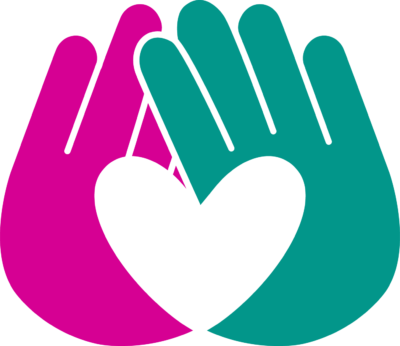by Adrienne Sheff Eisenberg, Psy.D., MFT, CPRP
(Published in SAMHSA’s Recovery to Practice Highlights March 27, 2014 newsletter.)
According to a survey conducted in Great Britain in 2011, 85 percent of respondents said that people with mental illness experience stigma and discrimination. In the United States, it is estimated that one in four adults is diagnosed with a mental illness annually.
Individuals with psychiatric disabilities have a dual challenge when it comes to their recovery; that is, recovery from a mental illness and the challenge of recovering from the negative attitudes toward people with psychiatric disabilities that are commonly known as stigma. It is well established that the stigma of mental illness is prevalent in our society among even the most educated and, surprisingly, including mental health practitioners as well. Because of the prevalence of stigma, It is very difficult for a person with mental illness to maintain a sense of self-worth and dignity.
Dignity and Stigma
Dignity is defined as being of “elevated character and worthy of respect”; in contrast, the definition of stigma includes “unworthiness, disgraceful, [and] shameful,” with an expectation of negative behavior.
The experience of stigma permeates every aspect of a person’s life, including relationships, housing, employment, and even health care. This results in feelings of shame, unworthiness, and social exclusion. Stigma leads to stereotypes, discrimination, a damaged identity, and a diminished self-concept that reinforce a person’s sense of alienation and negatively affect recovery.
Loss of Dignity
The loss of dignity is one of the most crucial things to understand about the experience of a person with mental illness. Individuals often experience lost opportunities and a loss of status, compared with others (for example, work or education, relationships, marriage, or parenthood and career because of years of interruptions by mental illness). Helping individuals understand their “lived experience” and accept their strengths provides one with the wisdom, courage, and determination to continue to achieve despite setbacks. Embracing hope and a vision of recovery enables clients to be willing to take risks to achieve new goals.
Barriers to reclaiming dignity include overcoming negative perceptions of self and others, experiencing fear and shame, and—perhaps the most difficult barrier—overcoming the fear of stigma itself.
There are methods and tools to diminish stigma and promote dignity with these most vulnerable persons. As the belief in recovery from mental illness is becoming more widely accepted among those in the traditional psychiatric, rehabilitation, and psychological community, more attention needs to be focused on interventions to assist in the process of overcoming prejudice and discrimination, and of promoting dignity.
Interventions
During the initial relationship building and assessment, clinicians must validate and normalize stigma experiences and relate to the humanness of being or feeling different while emphasizing universal needs—such as belonging, closeness, and desire for social validation—early in the engagement and assessment process.
One of the most critical and overlooked facts is that clinicians often fail to ask about the nature of adverse experiences such as those of discrimination, social/family exclusion, and prejudice. Not asking has the same effect as the former military code (“Don’t ask; don’t tell”).
For instance, one client shared the following:
I was a loyal member of my church and attended regularly for 12 years. I felt accepted at services and breakfast, but I began to feel isolated because I was never invited to celebrations, birthdays, weddings, or even holiday dinners. I felt that I was being ostracized from the community, due to my mental illness. People knew that I was different, I had medication side effects and mood swings. I felt like I was being tolerated but not really accepted.
The individual can discuss his or her experience of stigma with a pastor or in a peer support group. Making this a personal service goal is a very empowering and hopeful step in a person’s healing and recovery.
Developing Social Skills—Overcoming Stigma
When learning of someone who has a mental illness, many people may become uncomfortable and as a result avoid contact. The service provider can work with clients to practice disarming ways of approaching others—for example, engaging in social conversation, small talk, and greeting others in a positive manner. These behavioral shifts can greatly reduce the client’s experience of stigma. One of the most significant ways a person can overcome prejudice and discrimination is to assume healthier roles where he or she is not the role of patient or a disabled person.
To help clients build protective barriers and increase self-esteem, encourage them to choose role models. A person with mental illness often has few role models for how to behave in social situations. Assist clients in having a vision or in thinking about whom they would like to pattern themselves after. Pose the questions “What do I admire in others?” and “How would I like others to see me?” Help identify their strengths.
Lack of socialization is a major obstacle to achieving a sense of worthiness or dignity, for it reinforces alienation and decreased morale. Encouraging participation in the activities of daily living and normative community activities can increase a person’s sense of mastery and socialization. By being involved with and contributing to others, a person builds self-esteem and increases his or her social value and community acceptance.
Cognitive–behavioral tools are also helpful, in challenging negative or distorted thinking; evaluating feelings and encouraging the client to question “How would others act in this situation?” Reinforcing “person first” language (for example, “I have bipolar illness” versus “I am a bipolar”) and the use of positive affirmations are helpful tools in relationship skill-building.
Management of Stigma
The management of stigma can be addressed in multiple ways. One of the most frequent questions raised is the issue of self-disclosure. Self-disclosure is a choice that can be helpful for breaking down barriers, but it is important for the person to summarize his or her story, so as not to elicit fear and to maintain dignity. Summarizing the individual’s experience allows others to empathize with the successful side of that person’s recovery story. Also recognizing that, who the person chooses to disclose to—may not be ready to hear it. Encourage clients to present a balanced picture of their recovery, with the emphasis on the recovery part. Sharing recovery stories can be very inspiring to others going through the process and in decreasing prejudice and discrimination.
Meaning and Purpose
Having a sense of purpose or meaning is essential for well-being. Overcoming the effects of stigma is best accomplished when clients have responsibility and roles that are not defined by their illness.
Supporting clients in achieving dignity is a truly meaningful and practical way to guide persons in their recovery from mental illness. Keys to assisting clients in gaining self-worth and dignity include finding meaning or purpose in life and contributing to others; creating and holding a personal vision of recovery; and empowering clients to maintain dignity while living with some symptoms of disability.
Eliminating Stigma
Having a mental disability is a lot like being a survivor, and recovery involves facing the challenge with courage, commitment, self-responsibility, and hope.
Recovery from mental illness necessitates multidisciplinary supports ranging from medication to psychiatric rehabilitation and peer support services. To resolve the damage caused by stigma, the mental illness and the alienation must be addressed. The psychiatric disability requires care, support, understanding, and frequently medication. The alienation can be decreased by social involvement and meaningful relationships. Achieving dignity is the process by which stigma and alienation can be resolved in the individual. As a result, the effects of the disability can be minimized and reentry into the community and social inclusion can be achieved.
Finally, mental health practitioners must embrace the recovery principles of treating individuals with respect and dignity and must believe in the person’s ability to succeed and recover, rather than adhering to a belief in lowered expectations for those individuals who seek our help.
Dr. Sheff Eisenberg has 35 years of experience as a recovery-oriented professional in mental health. She also brings a family member perspective to this issue, and she has presented at numerous conferences. Contact her at asheff@sfvcmhc.org.
Access the article online: http://www.dsgonline.com/rtp/wh/2014/2014_03_27/WH_2014_03_27.html



